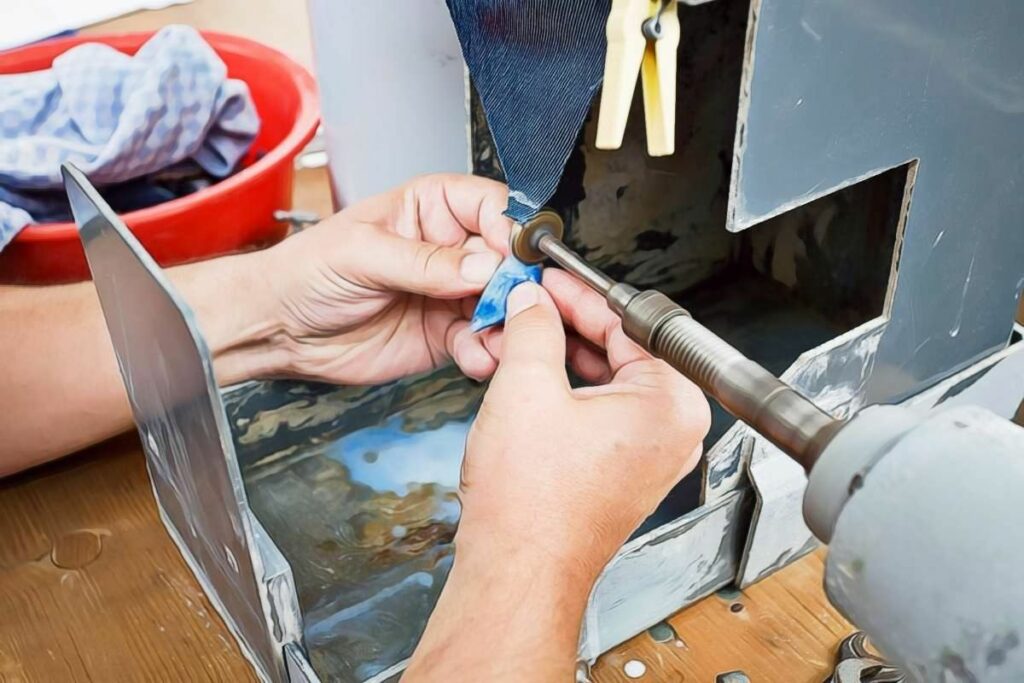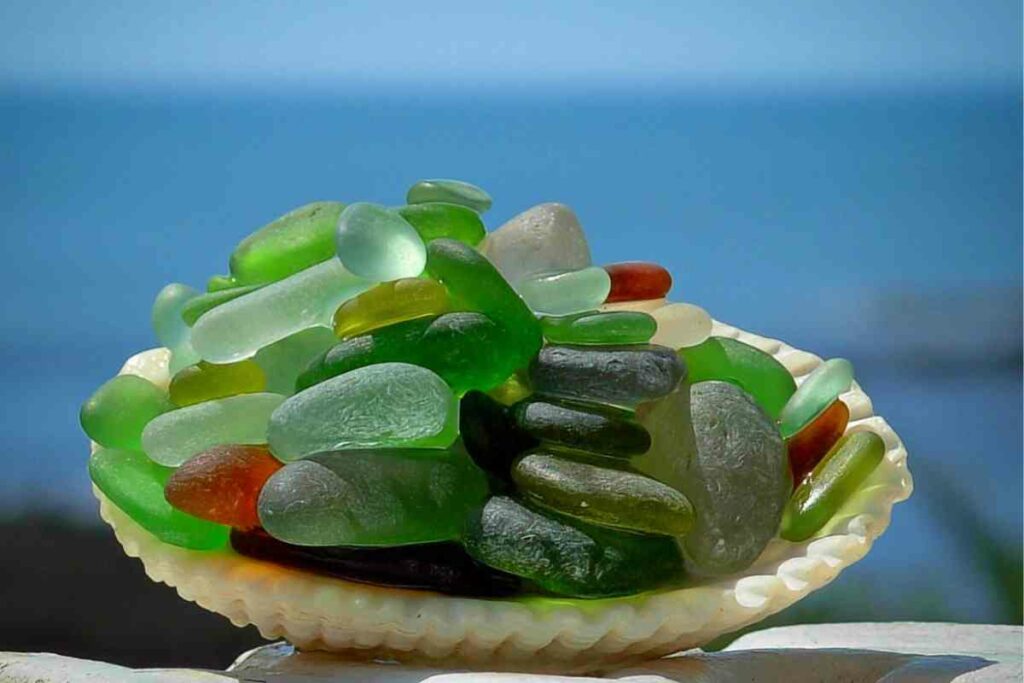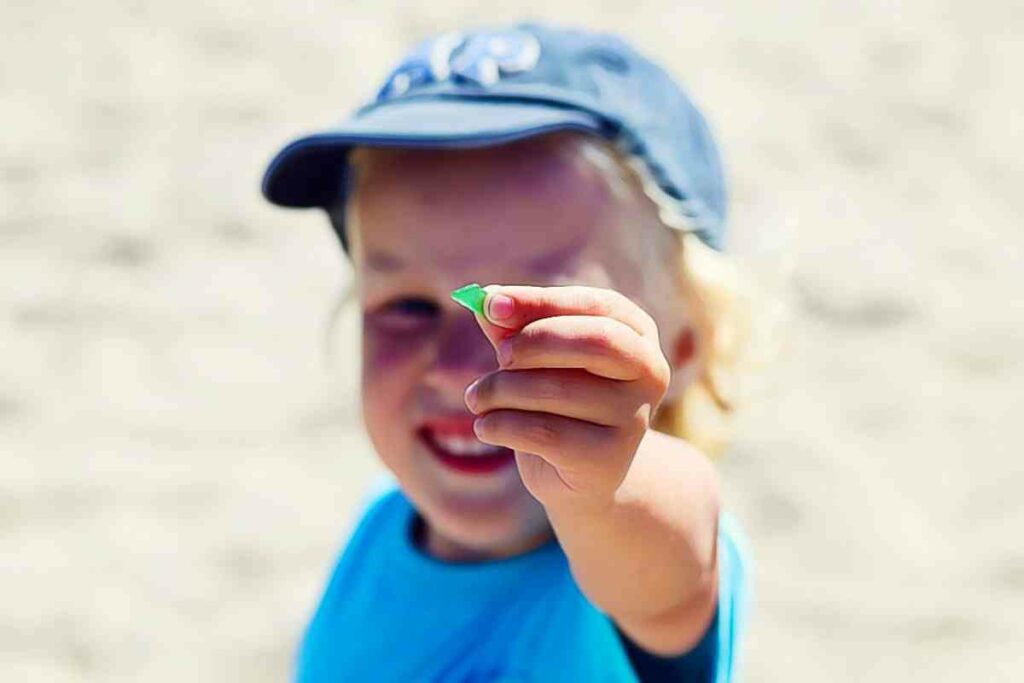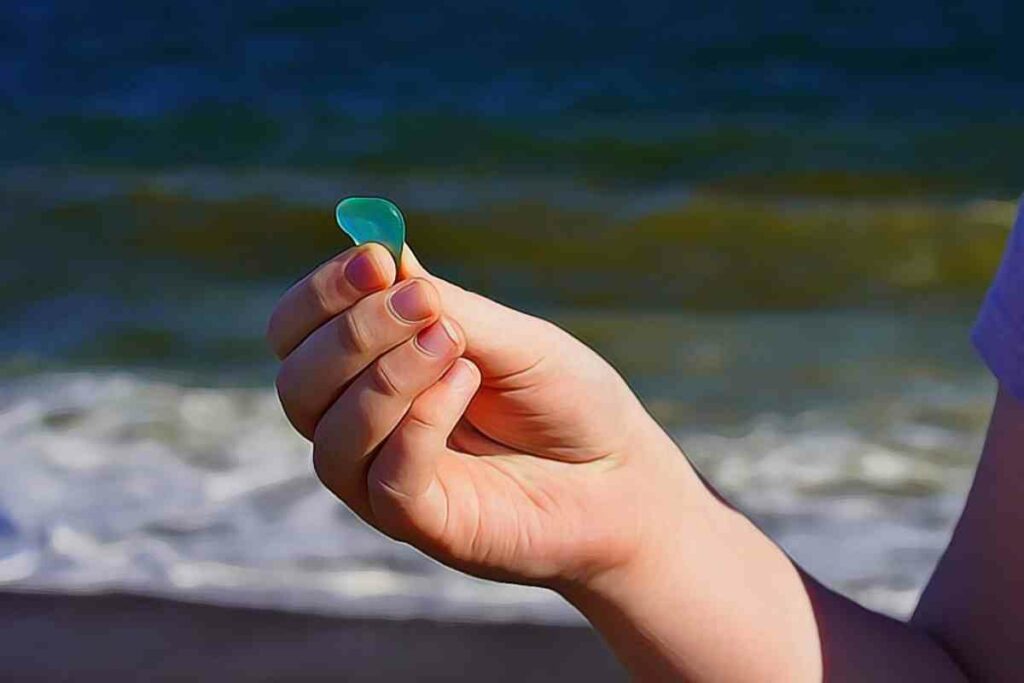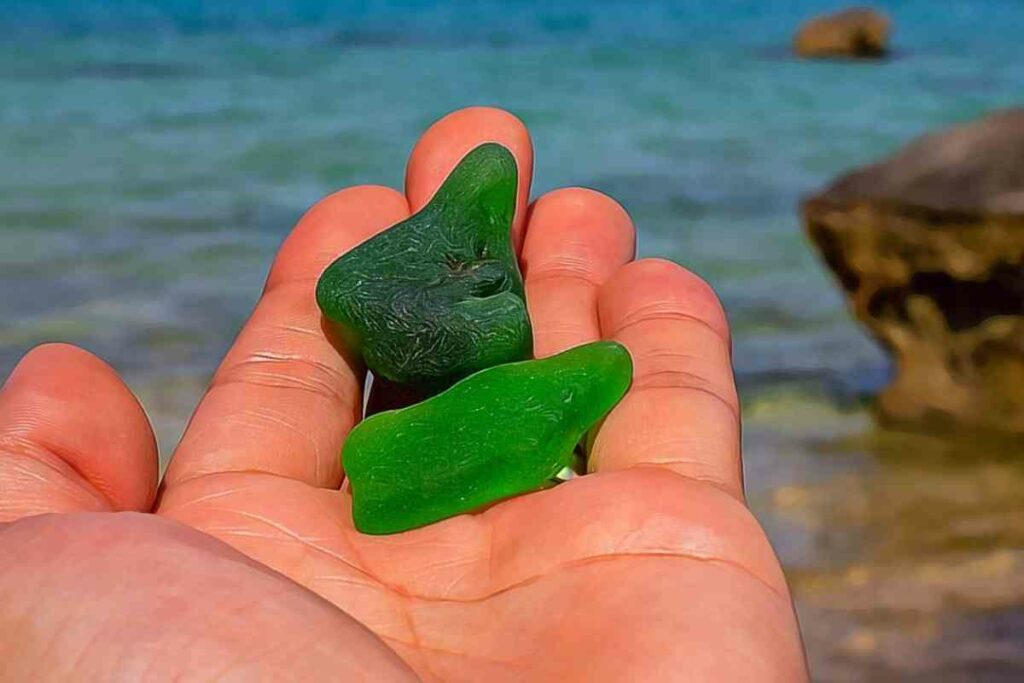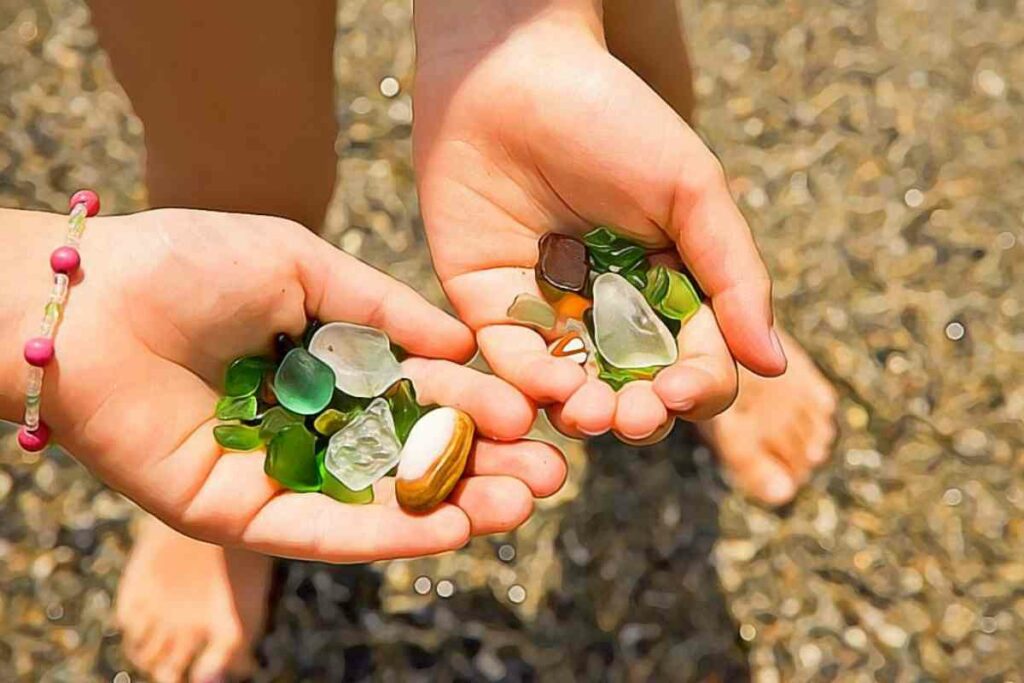Handling beach glass is thought to be safe.
However, even if the average individual doesn’t need to be very cautious when handling it, one can never be too safe.
Thus, taking some precautions is recommended to ensure your safety and those around you.
Is Beach Glass Safe to Handle?
Many people enjoy collecting beach glass as it can be used in various crafts, such as jewelry and mosaics.
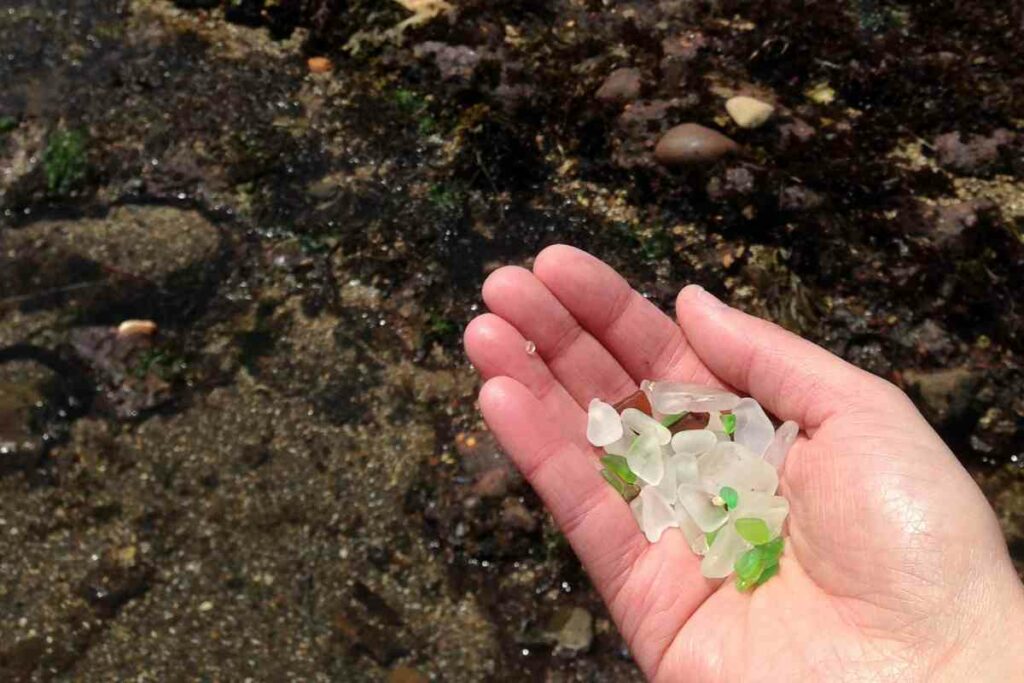
But is it safe to handle?
Yes, beach glass is perfectly safe to handle, and here are a few reasons why:
- Beach glass is made of utterly nontoxic material. This is because it contains the same material as regular glass, which is nontoxic and contains no harmful chemicals.
- It is believed that the glass fragments that make up beach glass are chemically inert. This means that they can’t trigger any reaction when they come into touch with the skin.
- Beach glass has gone through the weathering process. When beach glass is exposed to the ocean, it breaks down into small pieces, and over time, these pieces become smoothed by the tumbling action of waves, water, and sand. This makes them very unlikely to cause cuts or other injuries.
- While it’s true handling beach glass roughly can cause harm, the danger is minor. Since beach glass is chemically stable, it only gets damaged or chipped if dropped or mishandled. It cannot pose any threat as long as it receives the appropriate attention and care.
What Are The Potential Hazards Of Handling Beach Glass?
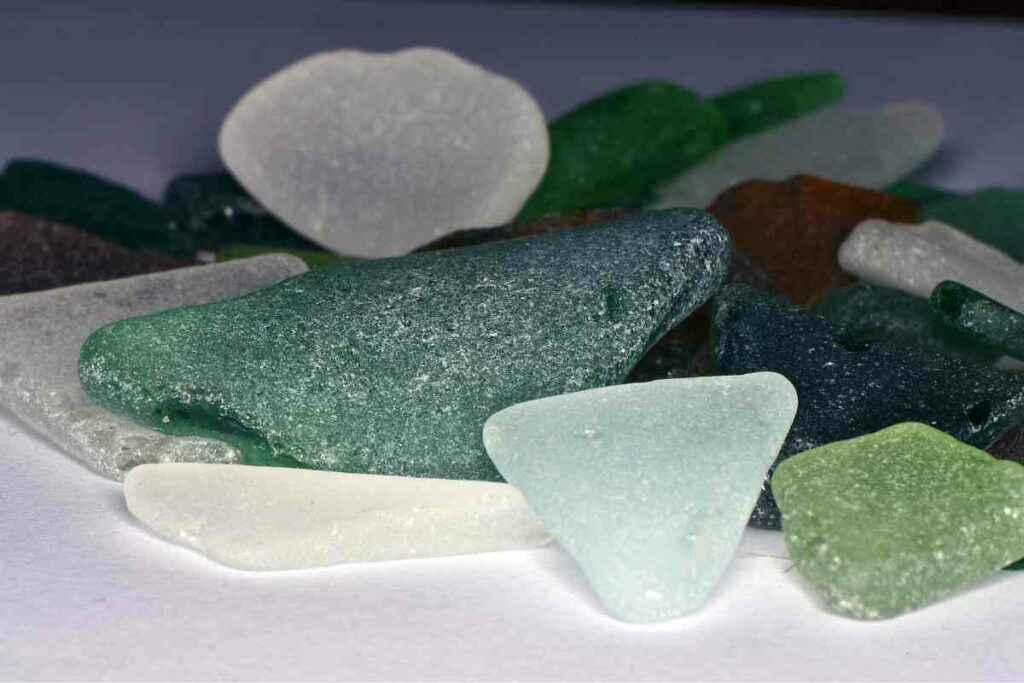
Though beach glass is safe to handle as a craft item, it is crucial to know the potential hazards if it is not handled correctly.
Chocking
It is important to remember that beach glass can be hazardous for children.
While adults know not to put beach glass in their mouths, younger children or infants may not yet understand the dangers.
As such, parents need to keep beach glass out of their children’s reach. Ingesting beach glass can lead to choking and other serious health risks.
Aside from this, the glass may also contain toxic minerals or chemicals from the ocean that are not safe when ingested.
It can also contain bacteria, fungi, and other microorganisms that can cause infections.
Cuts
It is still important to use caution when handling beach glass, as it can cause minor cuts and scrapes.
While the edges may look smooth to cut someone, they can still be quite sharp and jagged and have formations that can easily cut your skin if not handled with care.
Slipping
Beach glass is often found on the shore, and the surface can be wet and slippery.
While picking it up, it is possible to drop and shatter into pieces that could cut you when stepped on or when trying to pick them up.
There is also the potential for eye injury as those pieces of glass can still fly up and get into the eyes.
Tips on How to Safely Handle Beach Glass?
While working with beach glass, it is essential to take safety measures.
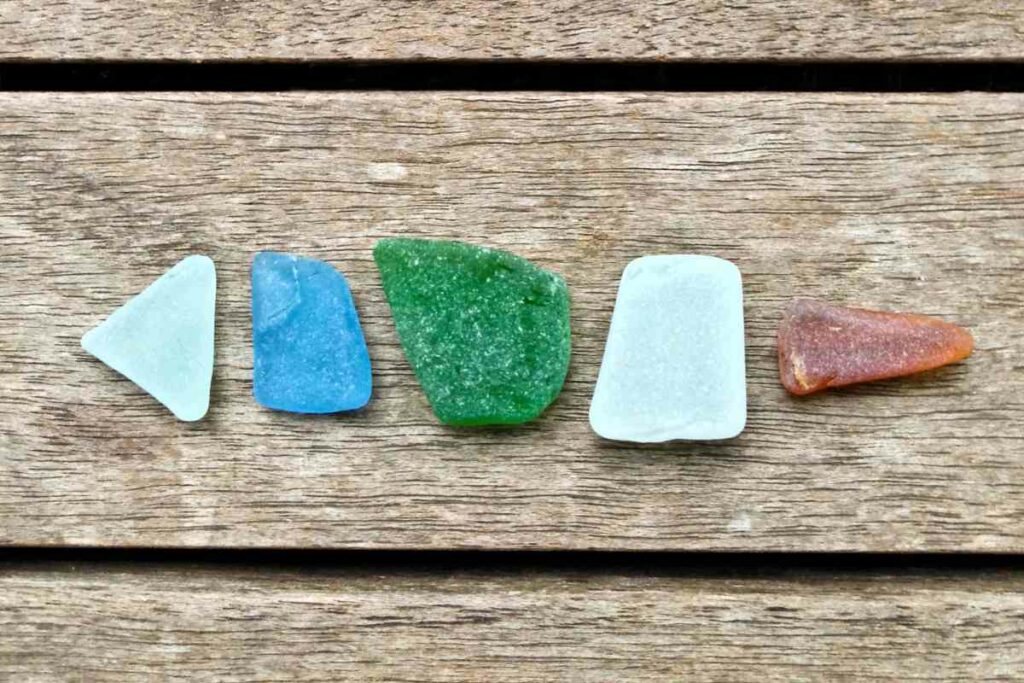
Safety must not be compromised, and basic ground rules must be observed first.
The basic recommendations for beach glass safety outlined below can assist you while working with it.
- Research beach glass before working with them.
- Clean your beach glass immediately after collecting it. Using fresh water, gently scrub it with a soft brush to remove dirt or debris. If your piece is very dirty, soak it in a solution of vinegar and water for a few minutes. Once clean, let the glass air dry completely before using it in your art projects.
- Wear protective clothing, including gloves, masks, eyewear, and shoes.
- Check for any sharp edges. If there are any, try sanding it down using green silicone carbide stone burr to give your glass a fine and smooth feel.
- Keep stones out of easy-to-reach areas to prevent children and pets from accidentally ingesting them.
- Wash your hands and gloves immediately after handling beach glass to prevent the spread of bacteria or other contaminants.
- Always store beach glass in a dry, cool area. This will help keep the glass in good condition and prevent it from becoming damaged.
- It is also important to understand the laws governing sea glass collection. For example, collecting sea glass in any state park in the USA is illegal. However, collecting them on beaches in the UK is completely fine as they are considered to be litter.
Final Thoughts
Working with beach glass is a true delight and a fascinating subject to collectors.
While the knowledge that it is generally safe to handle can be reassuring, you also want to take every step to ensure you don’t compromise your health and that of your loved ones.
Therefore, the more you know about working with beach glass, the better precautions you can take.

